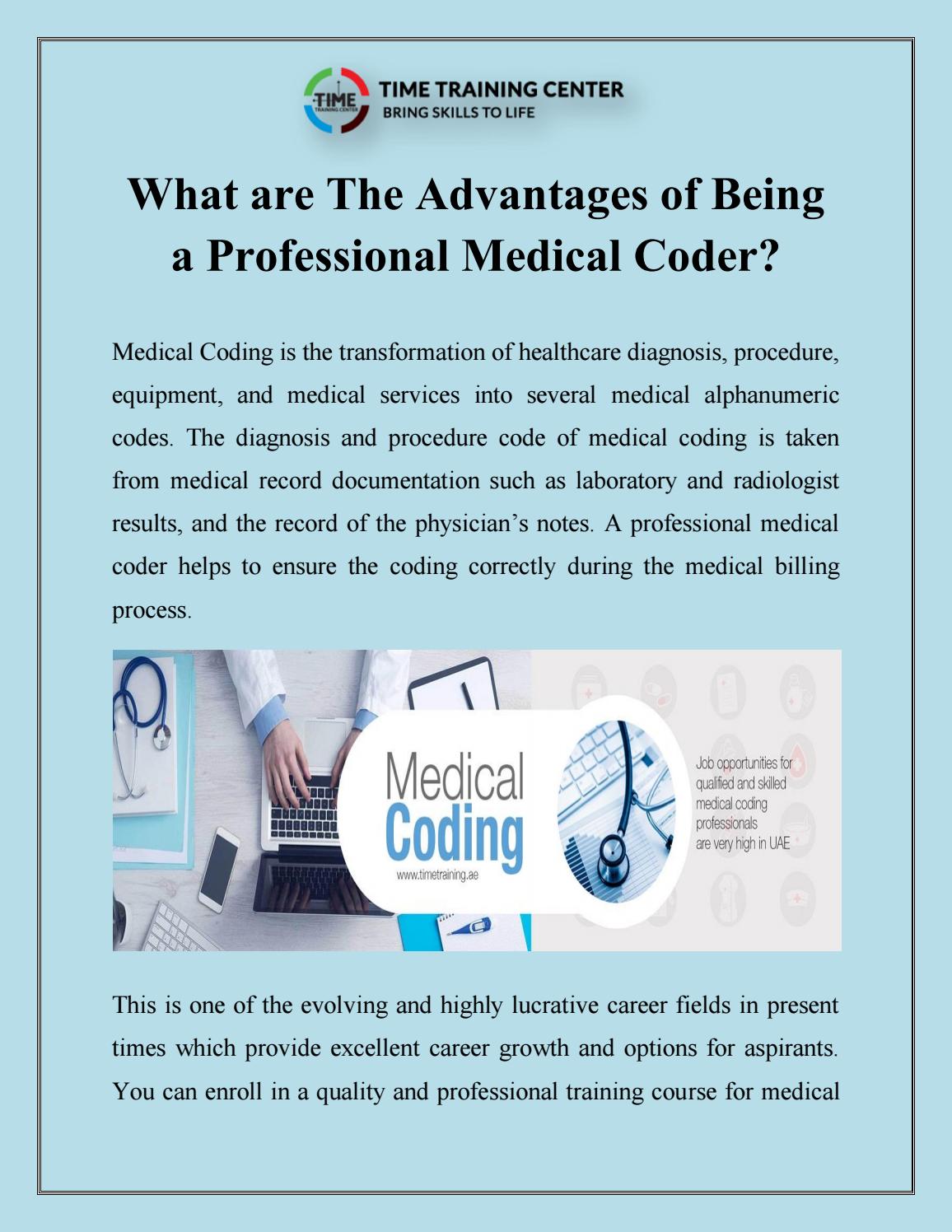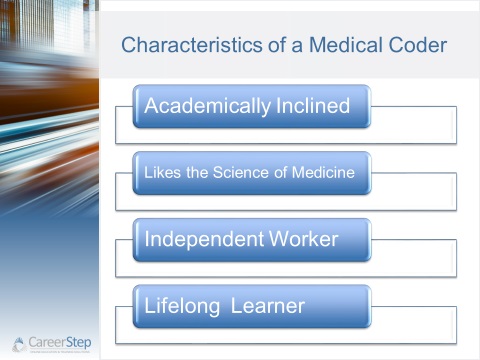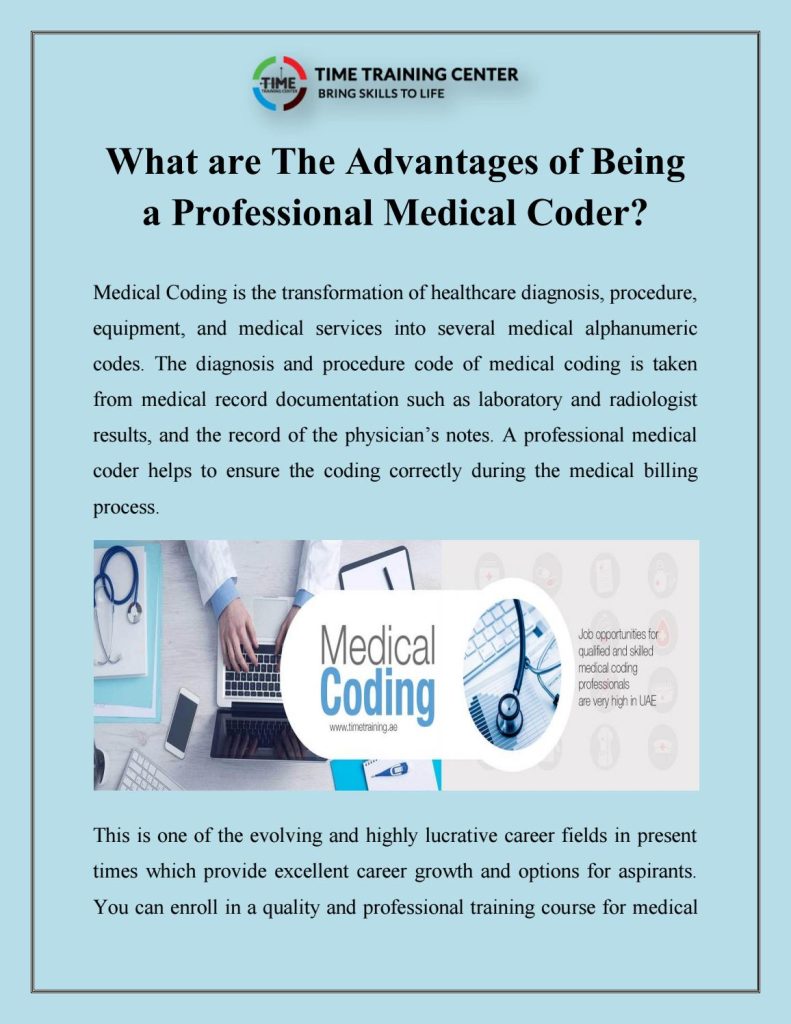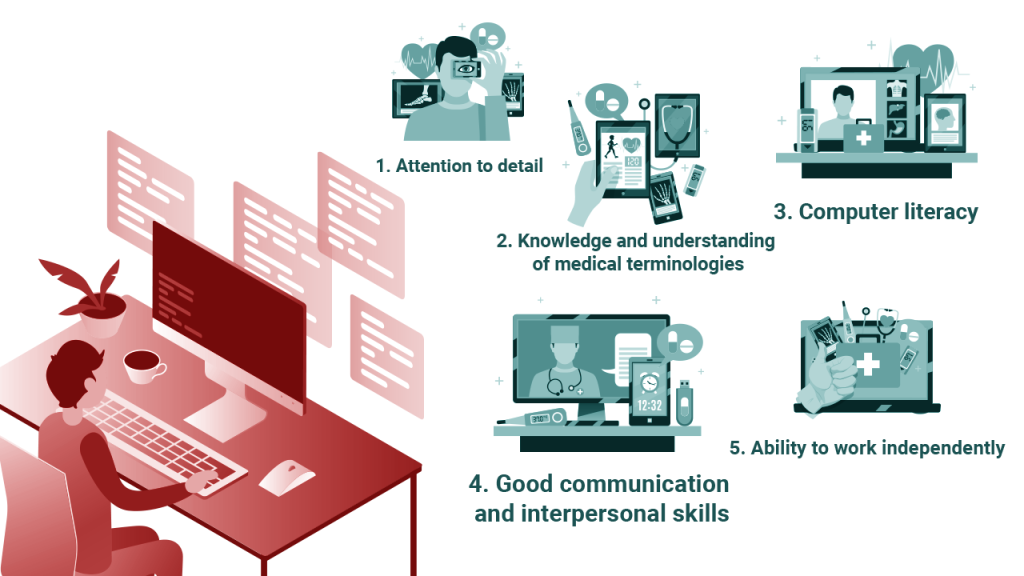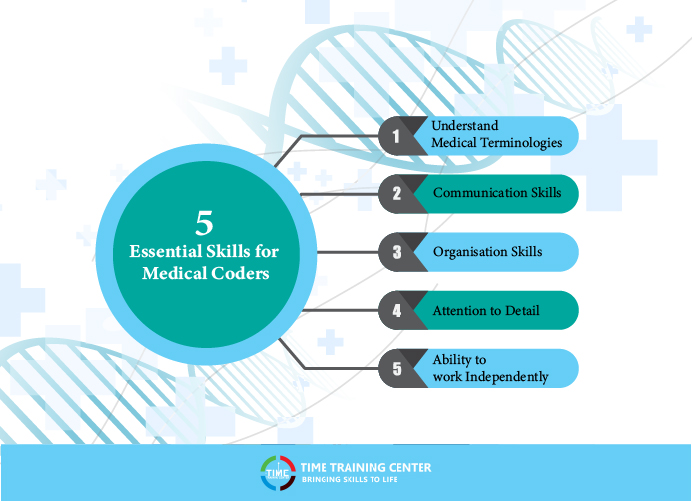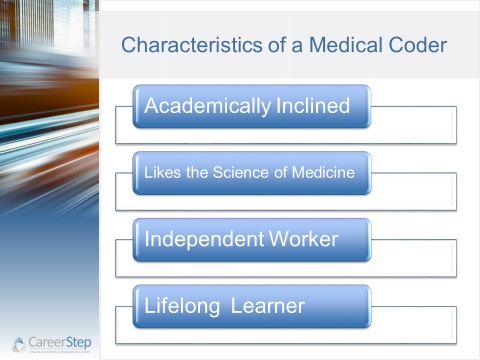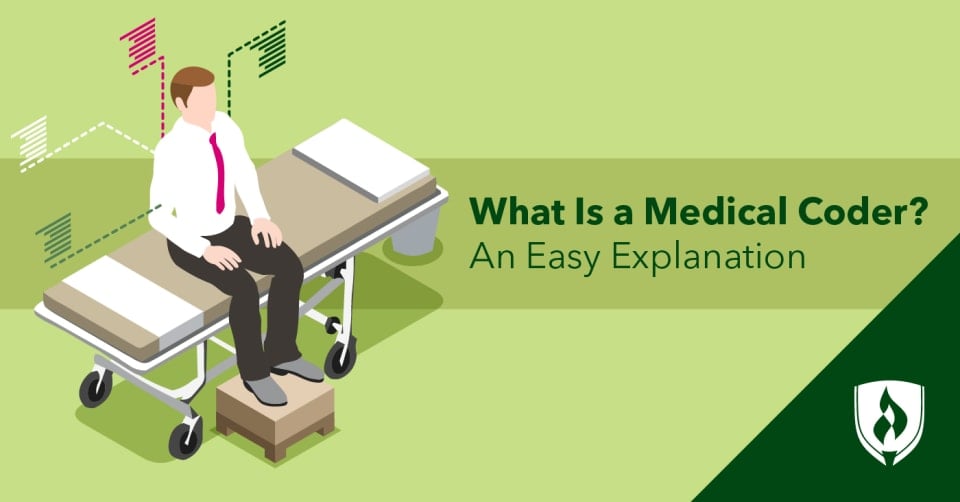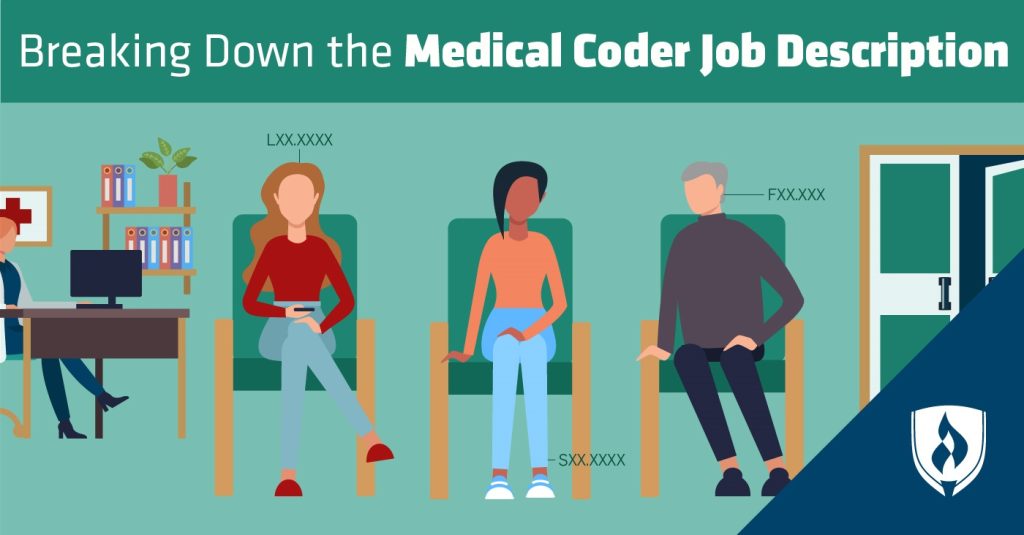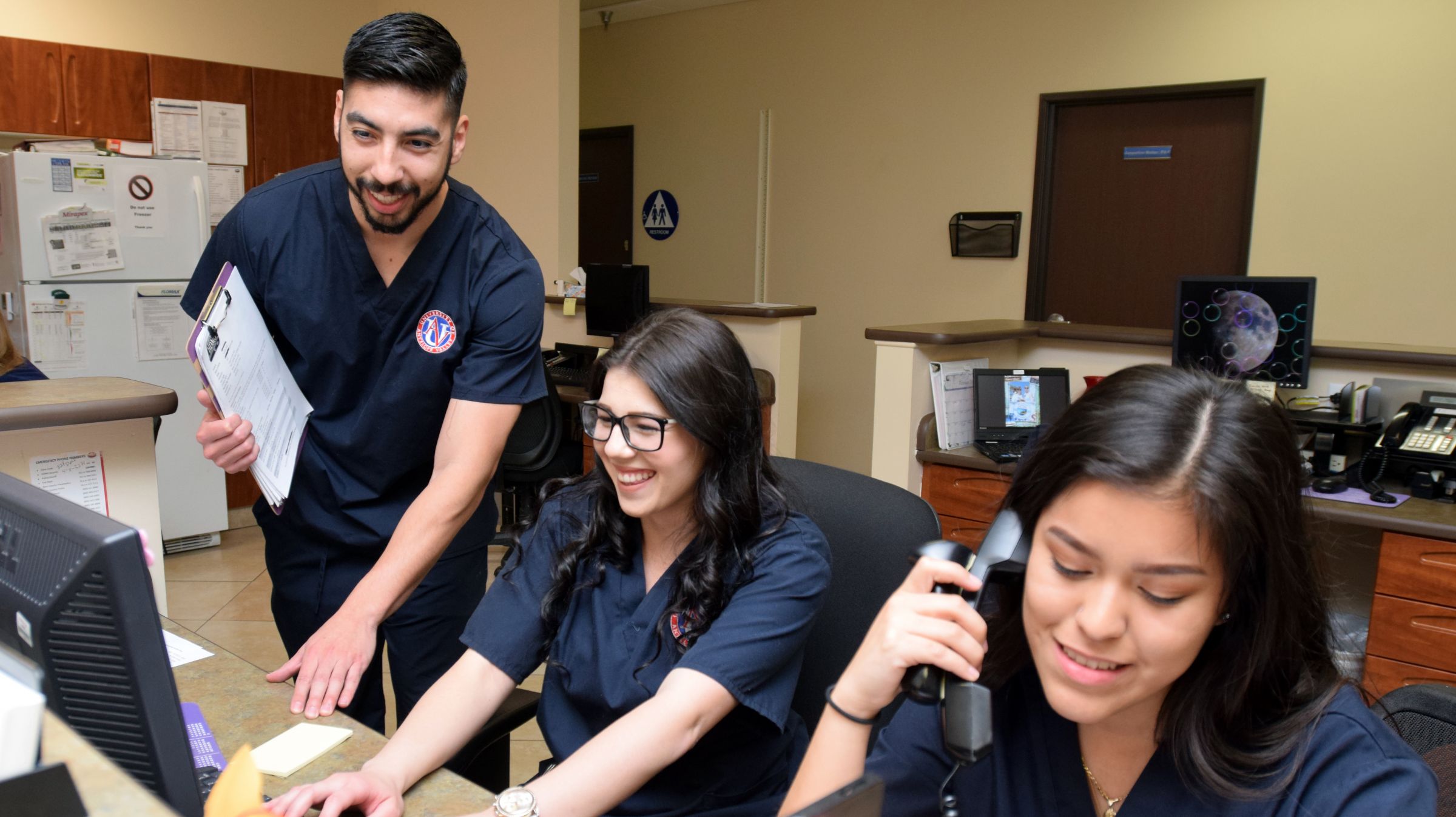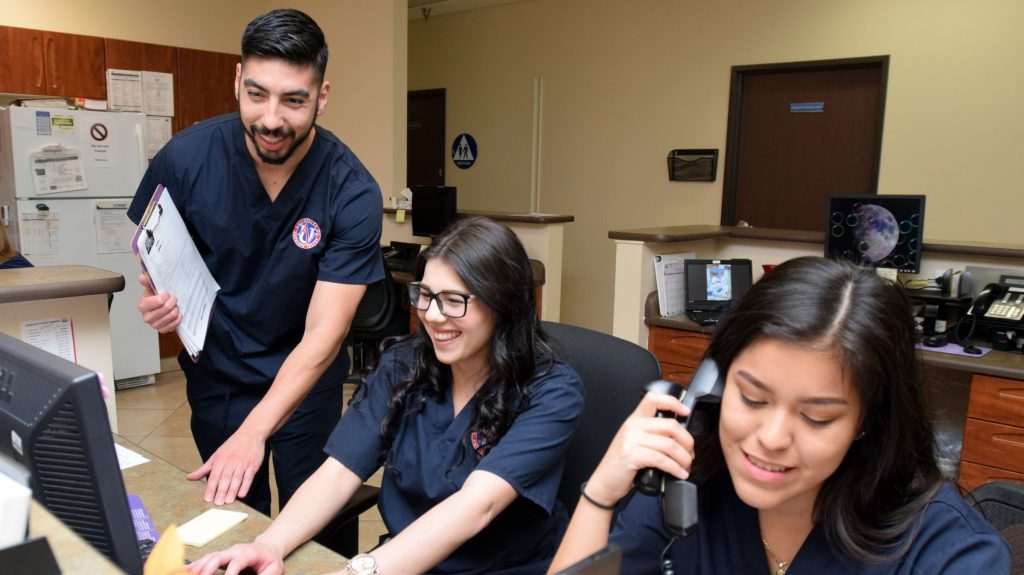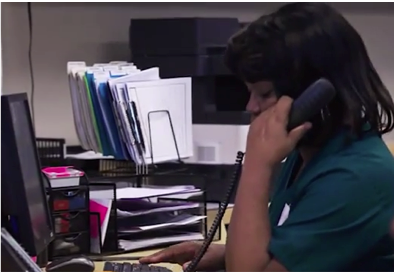In the field of medical billing, possessing the right qualities is imperative for success. Whether it’s attention to detail, strong analytical skills, or a comprehensive understanding of medical codes and insurance regulations, a medical biller must possess a unique blend of traits to effectively navigate this demanding profession. With the ever-changing landscape of healthcare, it is crucial for medical billers to adapt quickly, stay organized, and demonstrate the utmost professionalism in their work. This article explores the key qualities that should be embodied by a proficient medical biller, ensuring accuracy and efficiency in the billing process and ultimately contributing to the overall success of healthcare practices.
Knowledge
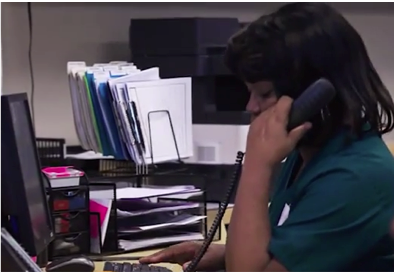
Understanding of medical terminology
As a medical biller, it is crucial to have a solid understanding of medical terminology. This knowledge allows you to accurately interpret and translate medical codes and descriptions into billing information. It helps you make sense of the documentation provided by healthcare providers and ensures that the correct billing codes are used for each procedure or service. Having a strong grasp of medical terminology also enables effective communication with healthcare professionals, insurance companies, and patients.
Knowledge of medical coding systems
Medical coding is a fundamental aspect of the medical billing process. It involves assigning specific codes to each diagnosis, procedure, or service provided to a patient. This coding system is used to communicate important information about the patient’s medical condition to insurance companies, so they can determine the appropriate reimbursement. A proficient medical biller should possess a thorough understanding of various coding systems, such as the Current Procedural Terminology (CPT) and the International Classification of Diseases (ICD). This knowledge ensures accurate and efficient coding, reducing the risk of billing errors and claim denials.
Understanding of insurance policies and billing procedures
A competent medical biller must have a comprehensive understanding of insurance policies and billing procedures. This knowledge enables you to navigate through the complexities of insurance claims submission and reimbursement processes. It includes knowing the different types of insurance plans, such as private insurance, Medicare, and Medicaid, and understanding the specific requirements of each. Familiarity with billing procedures, such as obtaining prior authorizations, submitting claims electronically, and following up on unpaid claims, is essential to ensure timely and accurate reimbursement for healthcare services.
Technical Skills
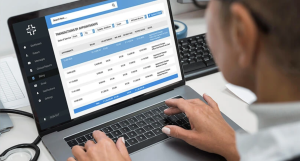
Proficiency in using billing software
In today’s digital world, medical billers rely heavily on billing software to streamline and automate their tasks. It is vital for a medical biller to be proficient in using such software to efficiently process claims and manage billing records. Proficiency in billing software allows for accurate data entry, generation of invoices and statements, and tracking of payments. It also enables the creation of customized reports for financial analysis and better decision-making. Mastering billing software increases productivity, reduces errors, and enhances overall efficiency in medical billing operations.
Knowledge of electronic medical records (EMR) systems
Electronic medical records (EMR) systems have replaced the traditional paper-based patient records in many healthcare settings. Medical billers must have a solid understanding of EMR systems to access and retrieve patient information necessary for billing purposes. This knowledge ensures accurate coding and billing of procedures and services performed. Familiarity with EMR systems also allows for seamless communication and collaboration with healthcare providers, enhancing the accuracy and efficiency of the entire billing process.
Ability to navigate and use online portals for claims submission
As more insurance companies transition to online portals for claims submission, medical billers must possess the skills to navigate and effectively use these portals. This includes understanding how to input and validate data, attach necessary documents or supporting documentation, and track the status of submitted claims. Proficiency in using online portals ensures timely claims submission and facilitates efficient communication with insurance companies. It also minimizes the risk of errors or missing information, leading to faster reimbursement and improved cash flow for healthcare providers.
Attention to Detail

Accurate data entry and record keeping
Attention to detail is a critical skill for a medical biller, as even the slightest error in data entry can lead to claim denials or payment delays. Accurate data entry involves meticulously recording patient information, medical codes, and billing details. This includes double-checking the accuracy of each digit or character entered, ensuring proper formatting, and verifying the completeness of each entry. Effective record-keeping is also essential, as it allows for easy retrieval of billing information and documentation whenever needed.
Thoroughness in reviewing medical records and documentation
Medical records and documentation provide the foundation for accurate billing. A meticulous medical biller must possess the ability to thoroughly review these records to identify and extract the necessary information for billing purposes. This includes reviewing physician notes, operative reports, laboratory results, and other pertinent documentation. Thoroughness in reviewing medical records helps ensure that all relevant services rendered are billed appropriately, reducing the risk of underbilling or overbilling.
Ability to identify errors or inconsistencies in billing
Identifying errors or inconsistencies in billing is an essential skill for a medical biller. This involves conducting regular audits and reviews of billing data and reports to identify any discrepancies. It may include cross-checking the billed procedures or services with the supporting documentation, comparing billed amounts with established fee schedules, or verifying the accuracy of coding. The ability to identify errors or inconsistencies allows for timely correction of mistakes, ultimately improving the accuracy and integrity of the entire billing process.
Analytical Skills

Ability to analyze and interpret complex medical codes
Medical codes play a crucial role in medical billing, and a competent medical biller must possess the ability to analyze and interpret these codes accurately. This skill involves understanding the intricacies of coding systems, such as CPT and ICD, and applying them correctly to each medical procedure or service. Analytical skills enable the medical biller to assess the documentation provided by healthcare providers and decipher the appropriate codes to accurately represent the services rendered and ensure proper reimbursement.
Capacity to identify patterns or trends in billing data
The ability to identify patterns or trends in billing data is an invaluable skill for a medical biller. Analyzing billing data can reveal important insights about the financial health of a healthcare practice or facility. By identifying patterns or trends, the medical biller can help detect potential issues, such as coding errors, workflow inefficiencies, or underutilized services. This information can then be used to implement necessary changes and improvements to increase revenue, enhance billing accuracy, and optimize the overall financial performance.
Problem-solving skills to resolve billing discrepancies
Problem-solving skills are essential for a medical biller when faced with billing discrepancies or claim denials. These skills enable the biller to investigate the root causes of discrepancies and determine appropriate solutions. This may involve communicating with healthcare providers, insurance companies, or patients to gather additional information or resolve disputes. Problem-solving skills also include finding alternative billing options, such as appealing denied claims, renegotiating fees, or setting up payment plans. The ability to effectively solve billing problems improves reimbursement rates, reduces payment delays, and ensures accurate financial record-keeping.
Ethical Conduct

Upholding patient confidentiality and privacy
Patient confidentiality and privacy are ethical and legal obligations that all medical billers must uphold. It is imperative to handle patient information with the utmost care and confidentiality to maintain trust and compliance with applicable privacy laws, such as the Health Insurance Portability and Accountability Act (HIPAA). This includes safeguarding patient records, using secure communication channels, and strictly following privacy protocols when communicating billing information with healthcare providers or insurance companies.
Adherence to medical billing and coding regulations
Medical billing and coding regulations are constantly evolving, and it is essential for medical billers to stay updated and adhere to these regulations. This includes familiarity with coding guidelines, payer rules, and reimbursement policies. Adherence to these regulations ensures accurate and compliant billing practices, minimizing the risk of audits, penalties, or legal consequences. By staying informed and compliant, medical billers contribute to the overall integrity and reputation of the healthcare organization they serve.
Honesty and integrity in handling financial transactions
Honesty and integrity are vital qualities for a medical biller when handling financial transactions. Ethical conduct requires transparency and integrity in financial dealings, such as accurately documenting payments received, providing honest explanations to patients about their bills, and reporting any potential fraudulent activities. Honesty and integrity build trust with patients, healthcare providers, and insurance companies, and create a positive reputation for the healthcare organization. By upholding these values, medical billers contribute to a fair and ethical healthcare system.
Communication Skills

Effective verbal and written communication with patients, healthcare providers, and insurance companies
Communication is a crucial aspect of medical billing, and a skilled medical biller must possess effective verbal and written communication skills. Verbal communication involves clear articulation of billing charges or procedures to patients, answering their questions, and addressing their concerns. Effective written communication includes submitting accurate and concise claims to insurance companies, documenting communication with patients or healthcare providers, and composing professional and grammatically correct written correspondence. Strong communication skills facilitate efficient and accurate exchange of information, fostering positive relationships with patients, healthcare providers, and insurance companies.
Ability to explain billing charges or procedures to patients
Medical billing can often be a complex and confusing process for patients. A skilled medical biller must have the ability to explain billing charges or procedures in a clear and understandable manner. This involves breaking down complicated medical codes or terminology into layman’s terms, providing detailed explanations of insurance coverage or benefits, and addressing any concerns or questions that patients may have. The ability to effectively communicate billing information alleviates patients’ stress and ensures their understanding and cooperation in the billing process.
Strong interpersonal skills when dealing with difficult or upset individuals
In the healthcare industry, medical billers frequently encounter difficult or upset individuals, whether it be patients, healthcare providers, or insurance representatives. It is essential for a medical biller to possess strong interpersonal skills to handle these situations with professionalism and empathy. This includes active listening, remaining calm and composed, and addressing concerns or complaints in a respectful and empathetic manner. Strong interpersonal skills help diffuse tense situations, build rapport, and foster positive and productive relationships with all parties involved.
Organizational Abilities

Efficient time management to handle multiple tasks and deadlines
Medical billing involves managing multiple tasks and deadlines simultaneously. A competent medical biller must possess efficient time management skills to ensure timely completion of all responsibilities. This includes prioritizing tasks according to urgency and importance, setting realistic deadlines, and effectively allocating time for different activities. Good time management ensures the smooth flow of the billing process, minimizes delays or backlogs, and contributes to the overall efficiency and productivity of the healthcare organization.
Organization of billing records and documentation for easy retrieval
Proper organization of billing records and documentation is crucial for a medical biller. This includes establishing consistent filing systems, maintaining accurate and up-to-date records, and ensuring easy accessibility and retrieval of information when needed. Well-organized billing records facilitate quick reference, support auditing or regulatory compliance, and expedite the resolution of billing inquiries. Being able to efficiently find and retrieve the necessary documentation saves time, reduces errors, and contributes to the overall efficiency of the billing process.
Ability to prioritize tasks according to urgency or importance
Prioritization is a key skill for a medical biller when managing multiple tasks and responsibilities. Understanding the urgency and importance of each task allows the biller to allocate time and resources accordingly. Prioritization involves assessing deadlines, determining the impact of each task on billing processes or revenue, and allocating resources to critical tasks. This skill ensures that high-priority tasks are completed first, minimizing any potential negative impact on reimbursement rates or cash flow.
Numerical Aptitude

Proficiency in basic math calculations and arithmetic
A solid understanding of basic math calculations and arithmetic is essential for a medical biller to accurately handle financial transactions. This includes calculating percentages, adding or subtracting amounts, converting units of measurement, and understanding mathematical formulas or equations related to billing or reimbursement. Proficiency in basic math calculations ensures accurate financial record-keeping, prevents errors in billing charges or payments, and contributes to the overall financial integrity of the healthcare organization.
Ability to handle financial transactions accurately
Accurate handling of financial transactions is a critical responsibility of a medical biller. This involves recording and reconciling payments received from patients or insurance companies, verifying the accuracy of reimbursement amounts, and managing accounts receivable or payable. The ability to handle financial transactions accurately ensures the financial stability and success of the healthcare organization, reduces the risk of financial discrepancies, and maintains positive relationships with patients and insurance companies.
Understanding of financial reports and analysis in medical billing
Medical billers must have a sound understanding of financial reports and their analysis to effectively manage billing processes. This includes interpreting and analyzing financial data, such as revenue reports, accounts receivable aging reports, or payment reconciliation reports. Understanding financial reports helps identify trends, monitor billing performance, and make informed decisions to optimize revenue and reduce billing errors. Proficiency in financial analysis empowers medical billers to identify areas for improvement, implement corrective actions, and contribute to the financial success of the healthcare organization.
Continuous Learning

Commitment to stay updated with changes in medical billing regulations
Medical billing regulations and requirements are subject to frequent updates and changes. A competent medical biller must have a commitment to staying updated with these changes to ensure compliance and accurate billing practices. This includes regularly reviewing industry publications, attending seminars or webinars, or participating in professional development programs. Continuous learning is essential for a medical biller to stay informed about new coding guidelines, payer policies, or government regulations that may directly impact billing processes or reimbursement rates.
Engagement in professional development and training programs
Professional development and training programs provide valuable opportunities for medical billers to enhance their skills and knowledge. Engaging in such programs allows billers to stay current with best practices in medical billing, learn new software or technology advancements, and strengthen their understanding of industry trends. Participating in professional development activities, such as workshops, conferences, or certificate programs, demonstrates a commitment to continuous improvement and a dedication to providing the highest quality of service in medical billing.
Willingness to adapt to new billing technologies and systems
Technology plays a vital role in the modern healthcare landscape, and medical billers must be willing to adapt to new billing technologies and systems. This includes embracing electronic billing platforms, learning new billing software, or implementing automated processes for claims submission and reimbursement. A willingness to embrace new technologies and systems ensures efficient and error-free billing operations, improves the accuracy and speed of claims processing, and enhances overall productivity in medical billing.
Teamwork

Collaboration with other members of the healthcare team
Medical billing is a collaborative endeavor that requires effective teamwork with other members of the healthcare team. This includes close collaboration with healthcare providers, nurses, administrative staff, or billing and coding specialists. By working together, medical billers can obtain necessary information, clarify coding or documentation requirements, or resolve any billing-related concerns efficiently. Collaboration with the healthcare team fosters a supportive and cohesive environment, ultimately improving the accuracy and efficiency of the entire billing process.
Ability to work well in a fast-paced and high-pressure environment
Medical billing often occurs in a fast-paced and high-pressure environment, requiring medical billers to thrive under these conditions. The ability to remain calm, composed, and focused during times of high volume or urgent deadlines is crucial. Medical billers should be able to prioritize tasks, communicate effectively, and adapt quickly to changing situations. Working well in a fast-paced and high-pressure environment ensures that billing processes are not compromised, claims are submitted on time, and healthcare providers receive timely reimbursement.
Flexibility in supporting team members when necessary
Flexibility is a valuable quality for a medical biller, as it allows for the seamless support and coordination within the healthcare team. This may involve assisting colleagues with tasks during peak periods, providing guidance or training to less experienced team members, or stepping in to cover for absences or emergencies. Flexibility ensures that the billing department operates smoothly, maintains productivity levels, and provides uninterrupted support to the healthcare organization. Being adaptable and accommodating enables medical billers to contribute to the success of the entire team and achieve collective goals.

